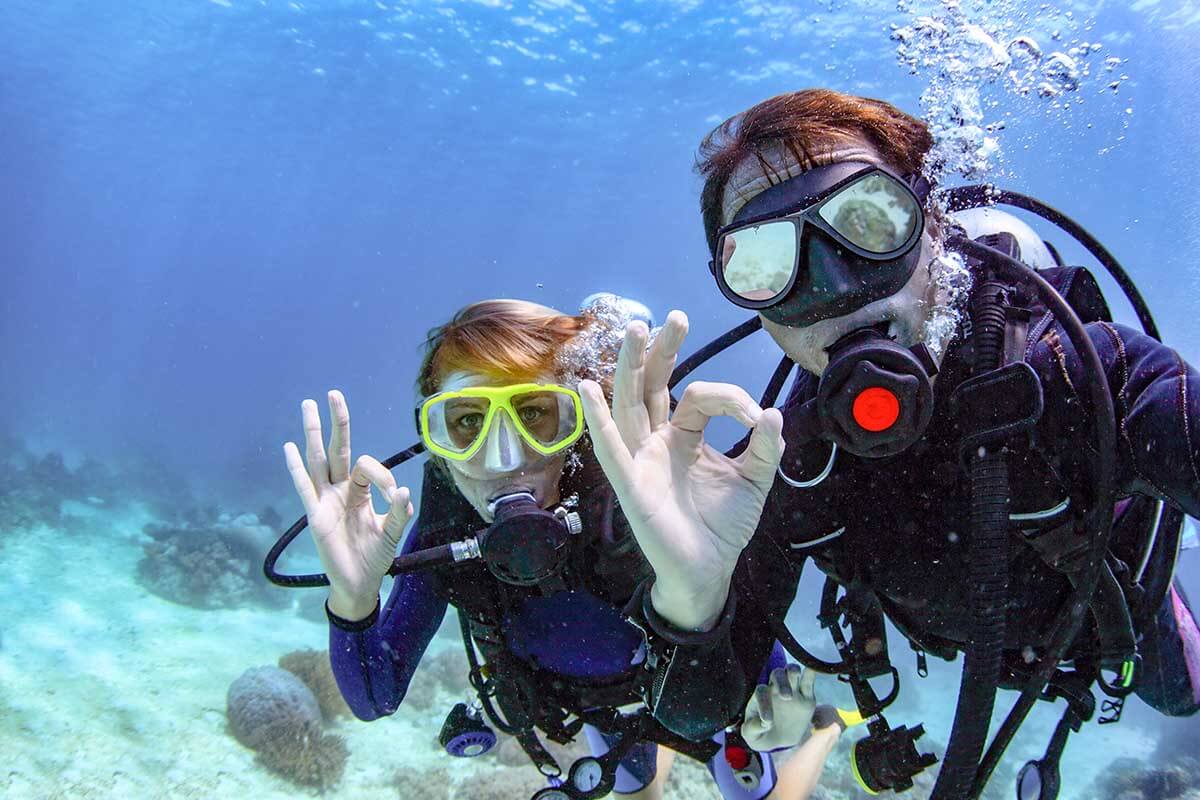
Once a very niche activity, learning to scuba dive today is something almost anybody can enjoy, but getting started can still be something of a minefield of choice and uncertainty. If you’re interested in learning to dive but aren’t quite sure where to begin, here are some of the most Frequently Asked Questions about learning to dive
Entering the aquatic realm is an awesome experience, especially when you come face-to-face with creatures you’ve only every seen before in documentaries, which – even with the best filmmakers in the world – can never capture the magic of such encounters.
Nowadays, virtually every holiday resort located near a body of water has at least one scuba diving centre, and there are many more local establishments and clubs catering to regular divers outside of the tourist market.
But there are pitfalls and problems associated with learning to dive. The training is not difficult, but it is not to be taken lightly, and despite what the advertising says scuba diving is not for everyone, but there is often so much choice that making a decision as to where to begin is sometimes not straightforward.
I spent nine years working as a full-time resort-based dive professional, and in that time was asked a raft of questions from people ranging from beginners who were interested – but uncertain – about learning to dive; to experienced divers who perhaps didn’t realise they had much left to learn.
In Chapter 1 of this Learning to Dive series, here’s fifteen of the most Frequently Asked Questions posed by customers to scuba diving instructors.

1 Is it safe?
Yes, scuba diving is safe, as long as you stick to some basic rules, keep your wits about you and don’t take unnecessary risks. It’s a bit like crossing the road: if you look both ways, judge the flow of oncoming traffic and keep your eyes open, you will reach the other side just fine. On the other hand, if you shuffle across a busy road wearing headphones with your face buried in your smartphone, the outcome is unlikely to be positive.
The number of certified divers has increased exponentially over the last 20 years but the number of fatalities as a percentage of the diving population has decreased. The most basic safety principles for diving are taught at the very beginning of every agency’s training program: Never hold your breath, never exceed the limits of your training, never tickle the wildlife.

2 How much does it cost?
The price varies across the world depending on location but at current prices in June 2022, an entry-level Open Water Diver course from PADI or SSI, the two most popular training agencies around the world, will cost between £250 in Malaysia to £350 in Egypt to £500 in the UK.
There are places where it will inevitably cost more – private island resorts are not known for their discounted diving – but the dive industry is very competitive and prices tend to average out across a particular location. Some dive centres may charge more because they offer services – such as boat diving, for example – that other centres can not, but if a dive centre’s price is significantly lower than others in the same location, then you need to ask some serious questions.
It’s worth noting that certification fees and course material requirements differ between agencies which will also affect the price. Some dive centres advertise the course price without those fees and include them as well-hidden extras in the small print. Make sure when you enquire that you ask for the complete course price including materials and certifications
When in doubt, use the old adage ‘if it seems too good to be true, then it probably is.’
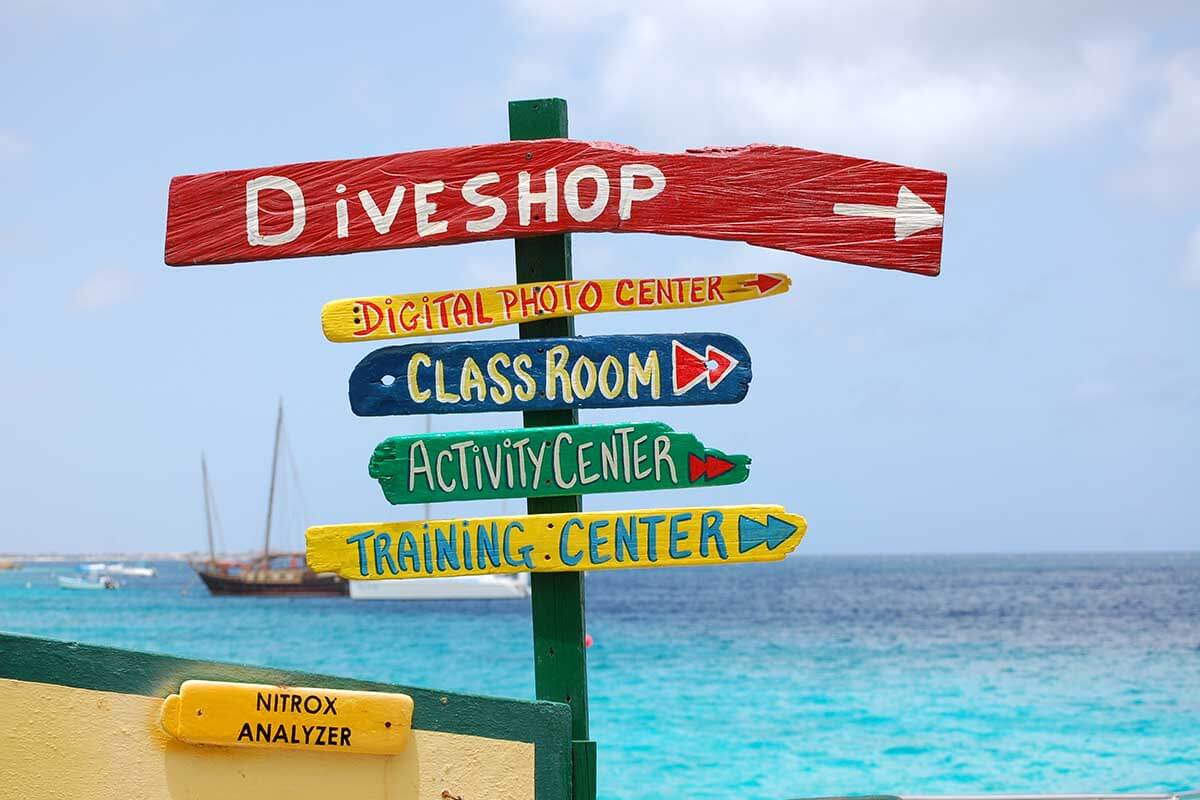
3 How long does it take?
An entry-level, recreational course taken on holiday usually takes between 3-5 days, depending on location and logistics. Some dive centres located right on the water have easy access to the training environments which means the training dives can be completed over a shorter timescale than a centre which needs to transport its students to a pool or dock.
For local club diving, a course may take several months to complete, depending on your time and availability and the schedule of the club’s instructors. The actual amount of time spent in training is more or less the same as it would be elsewhere but spread over weekends and weekday evenings instead of successive days.
Increasingly, the use of eLearning programmes with which students can do all the knowledge development online prior to attending the course means that the length of time spent on practical training can be shortened by as much as a day – but, overall, 3-5 days depending on environment and dive centre logistics.
4 Is it for me?
The first step if you’re uncertain about learning to dive is to get in the water. Go swimming, go snorkelling, see how you comfortable you feel in shallow water surrounded by fish. If you are not comfortable in that environment, learning to dive is unlikely to be a pleasant experience until you are.
Learning to dive, however, brings with it a significant investment of time and money, in an environment and with equipment that no amount of snorkelling can fully prepare you fully for. For these reasons, most dive centres offer some sort of introductory scuba diving experience – or ‘try dive’ – which will allow you to have a go without having to pay for a whole certification course upfront.
Yes, they are money spinners for dive centres and yes, many people take them to tick another box on the list of things they did on holiday, but introductory dives really are a great way for potential divers who are not certain if they want to complete the course, or perhaps can’t afford to take it at the time, to find out if they want to progress.
If you take one of these courses, make sure it is backed by agency-approved standards, such as PADI’s Discover Scuba Diving Experience, SSI’s Try Scuba Programme, BSAC’s Try Dive, or RAID’s Try Dive, depending on what’s available in your chosen locale. Don’t be tempted by cheap ‘intro’ dives which have no basis in training or standards. It’s the underwater equivalent of being lashed to the back of a wild horse and told you’re going for a pony ride.
An introduction to diving through one of these courses will cost between £30-£75 depending on where you are and what’s involved. Completion of certain requirements during the introductory experience may count towards the first part of an entry-level certification.
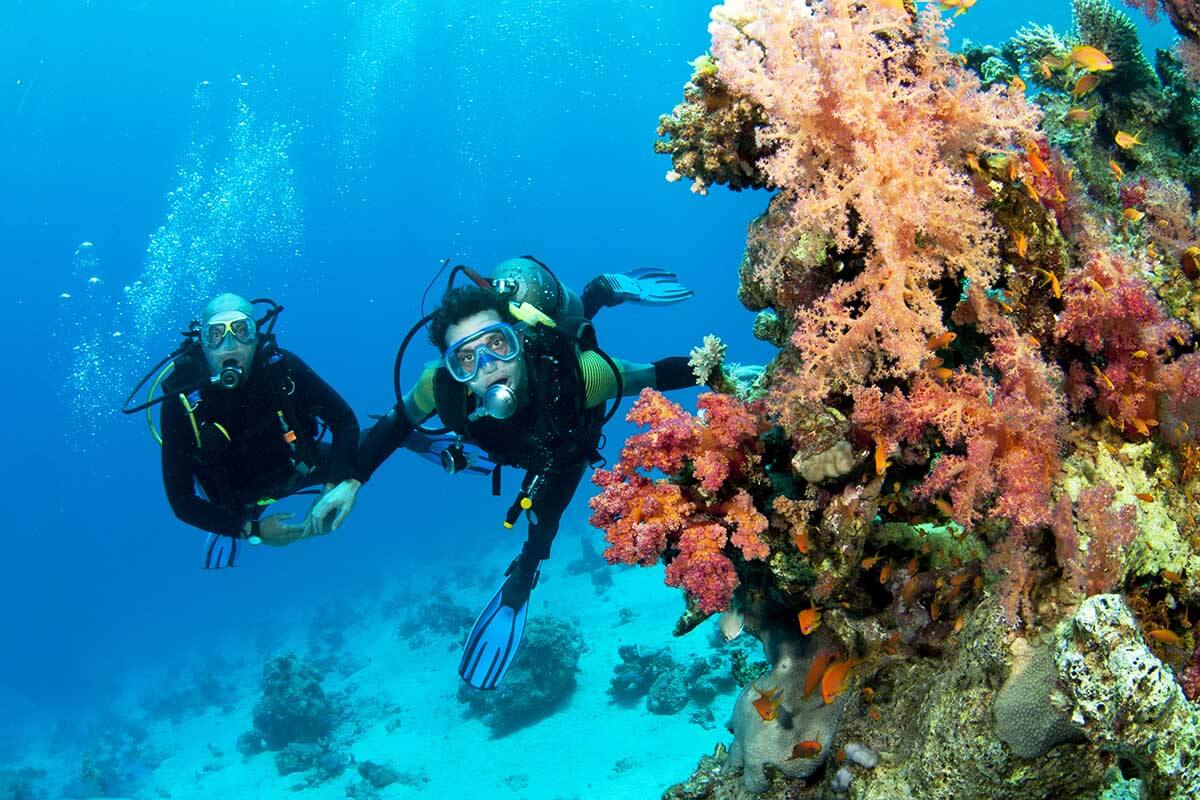
5 Which agency should I learn to dive with?
PADI, SSI, BSAC, CMAS, NAUI, SEI, SDI, STI, NASE, PDA… the alphabetti spaghetti of training agencies.
The argument about which is ‘better’ has raged across Internet dive forums for as long as scuba diving forums have existed. Here’s the simple answer: It does not matter.
When it comes to choosing an agency under which to be instructed, it’s mostly going to boil down to what is available in your chosen diving destination. If you’re on holiday in a typical tropical diving destination where the industry flourishes, SSI and PADI are the biggest players. In North America, NAUI; in the UK, BSAC; in Europe, one of the agencies listed under the broad umbrella of CMAS; relative newcomer RAID has a growing presence worldwide.
All agencies follow the same basic standards of training, but have slightly different approaches to its application. If conditions in a certain area require a particular skill set to be learned (for example, use of a drysuit), all agencies are required to teach it, if necessary.
Most entry-level certifications from one agency will be accepted as a basis for taking a continuing education class with another – for example – becoming certified as an entry-level SSI Open Water Diver in one location will qualify you to take a PADI Advanced Open Water course if there is no SSI centre in your next destination.
However – it is also true to say that agency standards are not equally applied by all dive centres and all instructors. That’s another discussion – but in practical terms, for the entry-level diver, it doesn’t matter which agency you train under, as long as you’re receiving training appropriate to the conditions in which you will be diving.
6 How do I find the right dive centre to learn with?
Ideally, potential student divers should do some research beforehand. If you’re learning to dive in your home town then you can pop along to your local dive centre(s), speak to their staff and instructors, and determine if you feel comfortable to begin your diving journey with them.
For those planning to learn on holiday abroad, or who do not have a dive centre nearby, then make contact with dive centres in the area in advance. Tell them exactly what you want, and what concerns or specific requirements you might have. Most dive centres will respond within 24-48 hours.
Tripadvisor has its uses, as do various Internet forums relating to scuba diving. including Scubaboard.com and groups such as Divers Forum on Facebook. Word of mouth goes a long way, but there are, inevitably, people with axes to grind. Those who complain the most and shout the loudest are often the least reliable sources of information.
Ask questions, expect answers – but if you feel at all uneasy, walk away.
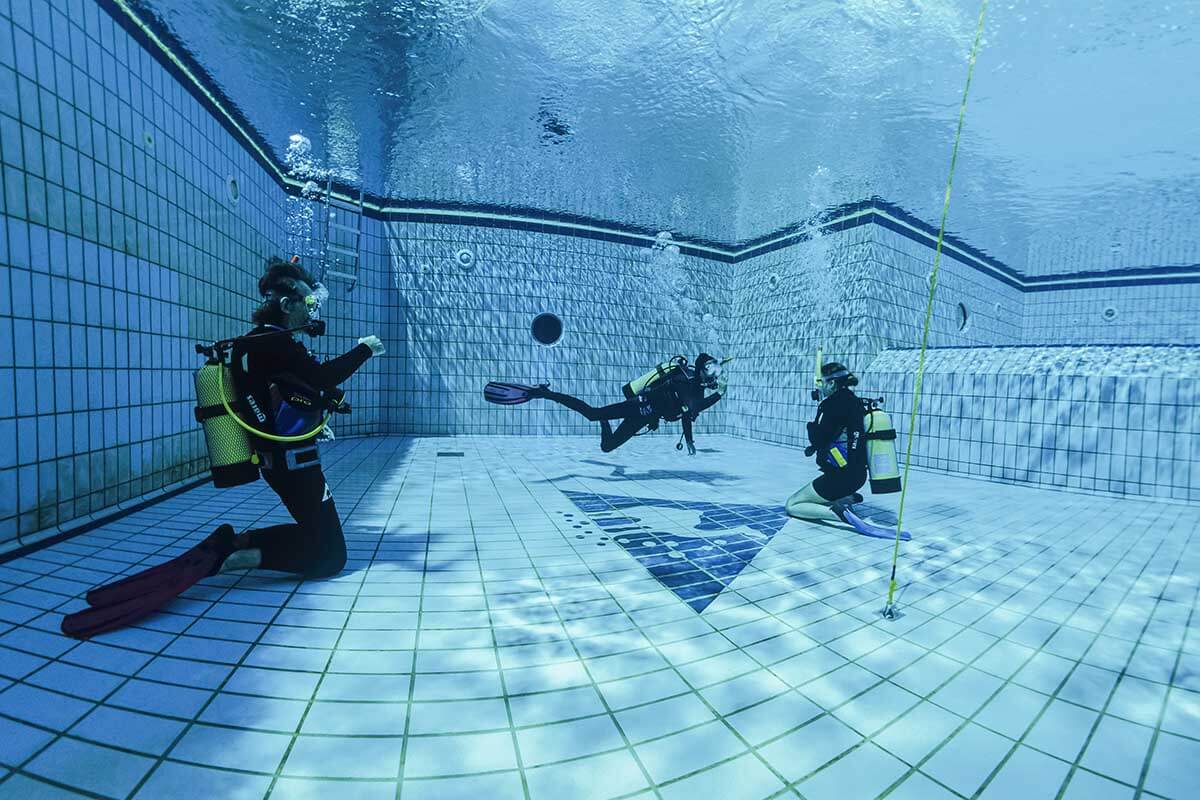
7 What’s involved in the training?
All dive training involves three components: theory, practice and application. Typically these will take the form of classroom or online learning programmes followed by quizzes examinations; confined water skills training and practice, where ‘confined water’ is a swimming pool or natural underwater location with easy conditions; followed by the final ‘checkout’ dives somewhere in the open ocean, sea or lake as appropriate.
These can be mixed in various pre-determined sequences so that the students don’t have to spend an entire day in a classroom or swimming pool, but it depends on local logistics and the training environment.
These can get mixed up together, so there’s a bit of learning, followed by a bit of training, followed by a bit of open water, then some more learning, then some more open water, then some more training and so on… it depends to some extent on logistics and the proximity of the training environment.
Online learning, or eLearning programmes, are available for most dive courses and these are highly recommended. Nobody likes going on holiday to sit in a classroom all day, so many people find taking the theory online before travelling is a much better way to learn. It also leaves more time for diving at your chosen destination.
Make sure you do learn, however. Dive theory is sometimes treated as a necessary evil. It’s not. It is of fundamental importance to your dive skills – perhaps even your survival underwater. Do not shirk that responsibility.

8 Do I need to be able to swim?
Most agencies require you to comfortably swim a distance of 200m without swimming aids. Some agencies will allow you to cover a longer distance of 300m using a mask, fins and snorkel. These requirements can be subject to local regulations, which may insist on the swimming, not the snorkelling.
Some agencies require that you must also be able to comfortably maintain yourself in water too deep to stand up in by treading water or floating for 10 minutes.
You don’t need to be an Olympic athlete or even a particularly good swimmer, for that matter, to complete the exercise. You can use any style you like, including doggy paddling or floating on your back and flapping your arms, if that’s what gets you through the distance. The key point of the swimming exercise is not your swimming skills, but rather that you are comfortable and strong enough to maintain yourself at the surface in deep water.
The short version is – you need to get some pool time before learning to dive, especially if you have little or no experience in the water before.
9 Can my kids learn to dive?
The earliest age for kids’ introductory scuba classes (shallow pool only) is eight years old. The minimum age for any entry-level certification is 10.
Many argue that this is too young, but it very much depends on the child. Diving requires a certain amount of physical and emotional maturity, and 10-12-year-olds display a broad spectrum on both counts. Parents need to decide if their kids are ready to take on the responsibility of handling dive gear and handling it, and themselves, safely underwater.
In most cases, kids are enthusiastic, safe and competent dive students, but it helps to talk to an instructor beforehand to make sure both the kids and their parents know the risks involved. Ask potential dive centres in advance if they have a specialist instructor for children – not all instructors feel comfortable taking on the responsibility, but some dedicate their lives to it.

10 I have a medical condition, can I learn to dive?
All student divers are required to declare potentially dangerous medical conditions in advance of their training, and seek approval from a diving physician before commencing a course.
Some relatively common conditions can be extremely dangerous underwater if left untreated. High blood pressure, for example, is potentially fatal underwater, especially in cooler water, but the risk is greatly reduced if the hypertension is appropriately controlled. Diabetes and asthma were, for many years, an outright ‘no’ for scuba diving, but advances in diving medicine have led to the easing of restrictions such that most type-2 diabetics can dive safely, as can some asthmatics, depending on what triggers their attacks.
The WRSTC medical form which some (not all) agencies use can be freely downloaded here. If you can answer ‘yes’ to any of the questions on the form, regardless of where you’re going diving, then it is imperative you seek advice from a qualified diving medical referee – with the caveat that the average family doctor/GP is unlikely to have enough knowledge of hyperbaric (pressure-related) medicine to sign off on a dive course.
A proper consultation will almost certainly cost money, but the result is most likely worth the expense. If the doctor says ‘yes’ then great, if they say ‘no’, then that may be disappointing, but consider that they may well have saved your life.
For UK readers: DDRC Healthcare charges £5 for an initial telephone consultation: www.ddrc.org. To find an approved medical referee in your area visit www.ukdmc.org
11 I have a disability, can I learn to dive?
Scuba diving is increasingly recognised for its therapeutic benefits for all types of disability, both physical and mental, but the path to certification varies depending on the type and severity of the disability.
Most of the major training agencies have adopted adaptive teaching techniques to cater for disabled divers, but to gain a standard entry-level agency certification, divers are required to meet all the standards of the course unaided.
Many disabled divers are quite easily able to meet these requirements where, underwater, the effects of gravity are lessened and the use of legs is not essential. Not being able to pass a regular certification course, however, is not an outright barrier to diving.
Specialist organisations such as Disabled Divers International (DDI) and the Handicapped Scuba Association (HSA) provide training that includes the disabled diver and also their companion, who will learn how to provide the assistance required to their disabled buddy.

12 Can certified divers join their kids or partners during training?
Technically yes, but most instructors – including myself – would not recommend it for entry-level courses. It can put undue pressure on the student and also, to some extent, the instructor. The certified diver often tries to ‘help’ and, more often than not, gets in the way. I personally encourage diving parents and partners to wait until their protégées are certified. Other instructors may be more accommodating, but ask in advance and don’t be disappointed if they ask you to sit out part, or all of the course.
For continuing education courses, by all means.
13 Do I have to buy my own equipment?
No.
Some dive outfits will ‘very strongly recommend’ that you buy equipment during the course – a sales pitch that often comes across as quite pushy and even, in some cases, a little intimidating.
While there is no requirement to buy equipment for the course, it makes sense for certified divers to own at the very least their own masks, snorkels, fins and exposure suit, based on their personal budget and how (And where) the plan to dive.
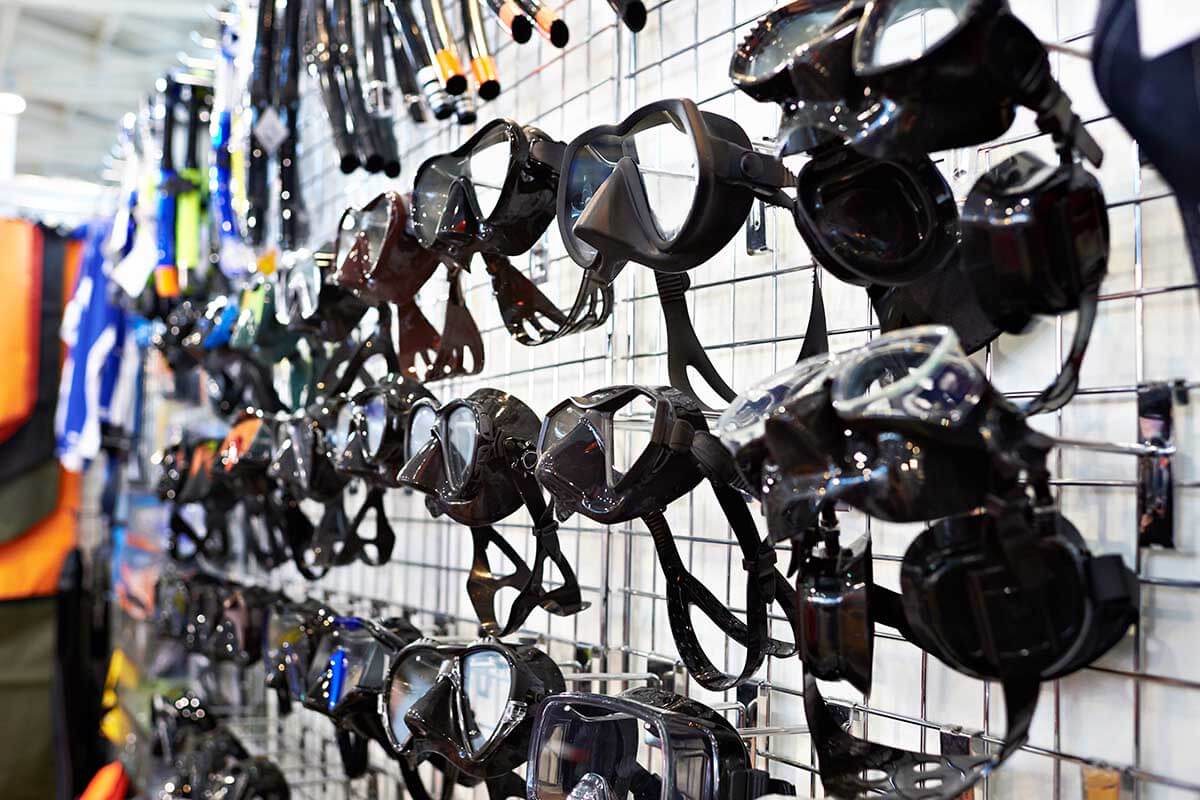
14 I am nervous – is that a problem?
Nerves are normal and natural – and, indeed, expected by instructors – before learning to dive. Your first step into the ocean can be quite an intimidating experience, but with good training imparted by a good instructor, you will learn to manage those nerves to remove stressors and reduce your levels of anxiety.
As a scuba diving student – indeed, for the rest of your diving career – it is always best practice to be up-front about voicing your pre-dive concerns and addressing them before getting into the water, after which it is too late. Do not hold your concerns in reserve because you fear somebody might find them silly; do not succumb to the effects of peer pressure from overconfident fellow students.
If you are worried about something, no matter how small, raise it with your instructor. Ask them to speak in private, if necessary. No good instructor will turn you away.
Overconfidence is often a sign that people are not willing to confront their fears. Overconfidence leads to accidents. Students who take a more cautious approach, display respect for the ocean and its associated dangers are more focused, more eager to learn, and make better students and better divers.
Do not be afraid to ask questions; do not be afraid to seek reassurance; and if you really don’t want to do something, call a halt to your diving day.
14a Will I get eaten by sharks?
No. Most shark species encountered by divers are quite timid and disappear if disturbed. Many commonly encountered reef sharks don’t grow much larger than 1.5 – 2m in length and are wary of your 2m-long dive-gear-clad noisy, clanking presence.
The biggest sharks – whale sharks and basking sharks – are filter feeders and pose no threat to humans unless you get too close and they decide you need a tail-slap to the head.
The likes of great whites and tiger sharks, whose toothy maws are often plastered across the tabloids are certainly fish that you need to be wary of, but attacks on humans are very, very rare, and even more so for divers.
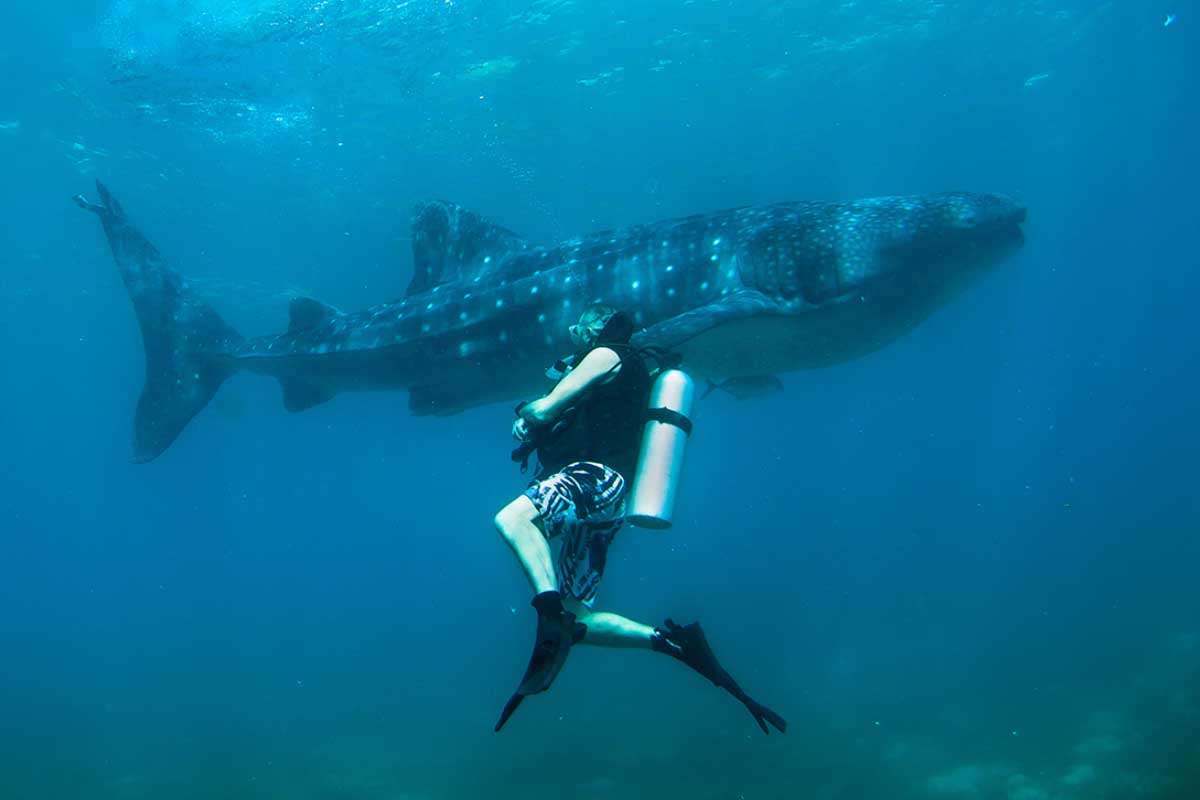
15 Is it fun?
Yes. Yes it is!
Not every dive will be the perfect underwater adventure but once you’re hooked, it’s difficult to let go. There are not many hobbies, however, that have quite the same profound impact as sharing a space in a world that – despite our best efforts – we know less about than the surface of the moon.
Learning to dive is a life-changing experience and it can be as enjoyable out of the water as it is beneath the waves. Wherever your adventures take you, you will always have an instant camaraderie with your fellow divers and the post-dive debriefing is a wonderful place to share experiences, talk about equipment and learn new things.
There is always something new to learn, no matter how much experience you acquire over the years, but with that experience comes a responsibility to keep up-to-date with your skills, continue your training, and practice safe and environmentally friendly diving at all times – and never stop learning.
In fact, diving only stops being fun when you don’t take it seriously.
